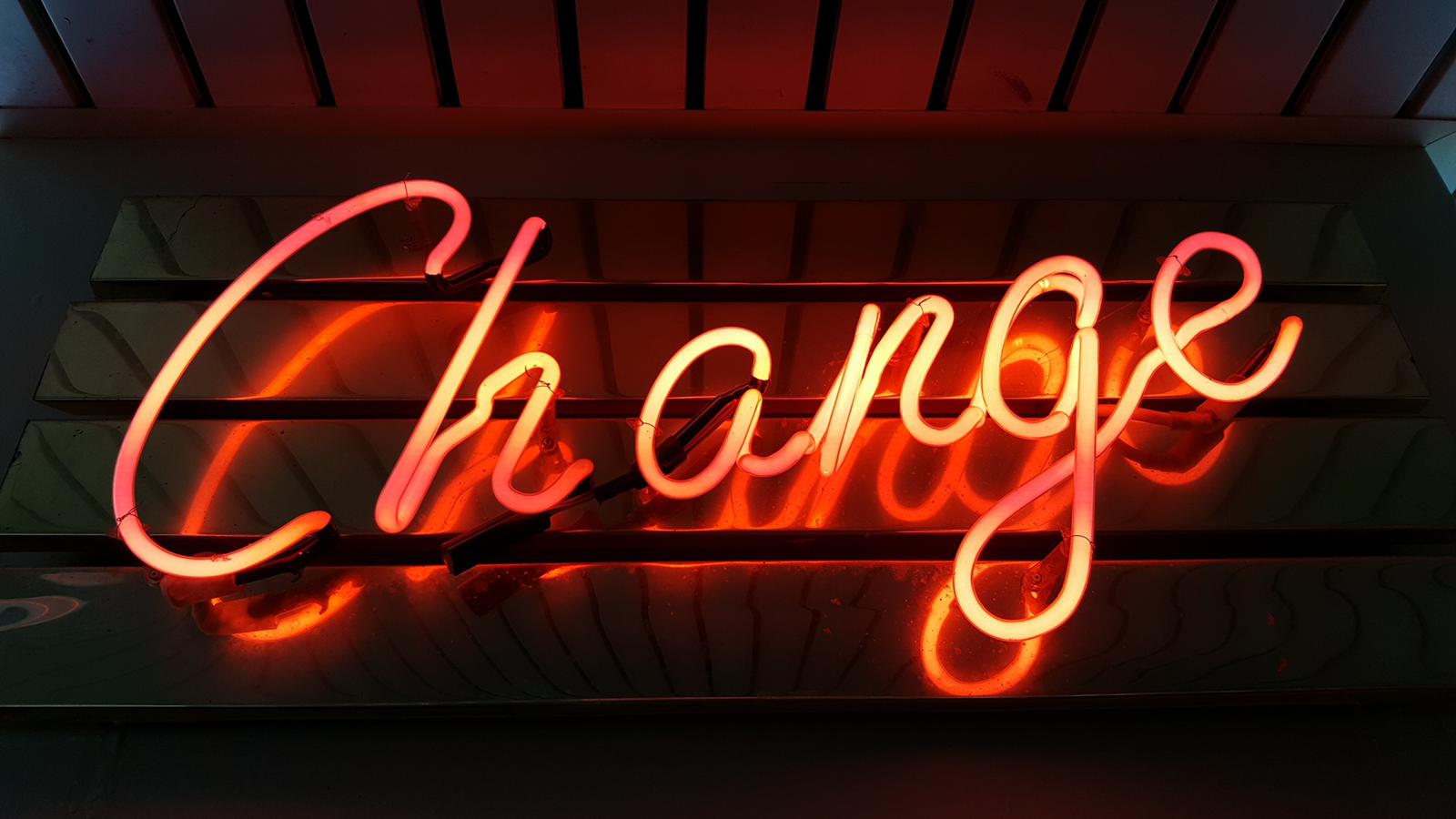Change management; something that originated in the 80s and 90s by the likes of Harvard Business School and those clever peeps at McKinsey’s, primarily to help organisations who needed to adapt to keep up with innovation mainly in technology. Whether it’s the 4-step model or the 8-Step Process, since then companies have invested billions in bringing in these big business consultants, to run projects to deliver a transition from step A to step B.
I myself undertook such a project back in 2006-7, leading the change management when Eurostar moved from Waterloo to St Pancras. Change management being people plus process; we had a huge team of super smart engineer-type people who were mainly focused on the process bit which one would expect, as shifting an operation overnight across London was no mean feat! My role, unsurprisingly, was the people bit…taking the hearts and minds with us; ensuring everyone involved understood why, what and how things were happening all along the way and getting them passionate about their role in making it happen. Brilliantly.
The unusual thing about this particular change project was that it had a physical end point. On the 14th November 2007, as I stood on that platform watching our first train depart with a tear in my eye, you could argue that my job there was done. However, we didn’t stop there. We worked hard to maintain the momentum, engagement levels and pride the team had in the business at the time. We evolved the brand, improved the experience and entered into a new phase of continuous improvement that I hope is somewhat of a legacy at Eurostar even today.
And thus was born my love affair with change management. However, the question that I keep asking myself nowadays, over a decade later and with plenty of experience in leading big change of one form or another, is whether change management is the right term for today’s environment? It infers a) there’s an end point and b) it’s something that sits separately to every day operations and thinking. Even before this bonkers year we’re living through, show me a company that wasn’t either in the middle of a transition or in desperate need of one! Technology is changing so fast that as soon as departments have adapted to a new system, it’s ready to be replaced by a bigger, faster, newer better one. Cultural shifts, societal trends, political agendas… nowadays these are all changing at such a pace that living in a state of change is surely the norm?
Along with our partners PlanetK2, one of the things we support our clients to achieve is the creation of high performance cultures. Our role is to provide the tools, rhythms and rituals it takes to make a difference and it’s incredibly effective, but we would never look at a business and say “you’re there. Stop trying now”. A truly high performing organisation knows there is always more to learn, more to improve, better teamwork, better efficiencies, better inputs driving better outputs.
Because real change, sustainable, results-driving, big hairy audacious change, takes time, energy and focus and… most fundamentally today, has to be an ongoing thing. You can have gates, milestones, pit stops and all the other project terms we throw at it, but quite simply, you NEVER get there. Thus my conclusion that really, change is now just Business As Usual.
Never has this been more true than in 2020. The rate of change for most businesses, whether it has been shifting from office to remote working, in-store to home delivery, retail to e-commerce… this year has seen a constant need to adapt and flex. And this isn’t just about our ways of working. From a behavioural, HR and comms perspective, the political agenda has shifted so rapidly and the need to transform our approach to anti-racism, diversity and inclusion has been seismic (thankfully!),
Some of us thrive in situations where change is required, that is true yet others are slower to accept the new. I can’t help but feel for them… this current environment must be hellish.
In order to actually accept our situation and survive right now, uncertainty has to be our friend. Those who flourish will be those who have a mindset to embrace change; those with the ability to build the right mental muscle, that can respond to the unexpected… For these minds, uncertainty becomes almost a welcome source of opportunity.
One could be forgiven for thinking that as a change management expert, I am somewhat peeing on my own bonfire here, but actually we at Glow have always focused on the long game – getting under the skin of what’s driving the brand and the culture to create a mindset change rather than a process one, preferring to teach our clients to fish, as opposed to giving them one served on a plate.
However the next six months or six years pans out, constant change is here to stay. At some point I pray that part of it involves a change back to in-person meetings, cocktail bars and holidays but whether it’s that or a new form of lockdown (heaven forbid) we all need to be ready to roll our sleeves up and keep on changing. And as a result, change management shouldn’t be the role of a particular consultant, team or department, it’s got to be part of everyone’s job and everyone’s mindset going forward.




